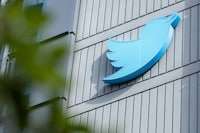On the Friday before Thanksgiving, a form of elegiac madness swept over Twitter’s power users in media and academia. Watching the mass exodus of staff under Elon Musk’s new leadership, they concluded that the site would go down any minute. While they still could, millions of them began saying goodbye to one another, trading wistful eulogies about all the good times they’d had tweeting together.
Has Elon Musk succeeded by luck — or does he know what he’s doing?

When dawn came and Twitter was still running, this all looked a little silly. But if their concerns were premature, they were hardly unreasonable. Though it seems possible that Musk is just in the early, messy days of turning around a company that had become dysfunctional under complacent management, it’s distressingly hard to tell whether we’re witnessing a process of creative destruction, or Silicon Valley’s favorite chaos muppet destroying the company he wanted to save.
Since Musk took over in late October, his whiplash-inducing policy changes have spooked advertisers and sent approximately 75 percent of Twitter’s workforce packing. While a skeleton crew can probably stave off a catastrophic implosion, smaller features of the service might soon start to break (indeed, some already have), and the loss of advertising revenue will mean less money to rebuild. Meanwhile, Musk himself is dangerously overleveraged, having pledged most of his Tesla shares to finance this and other deals. If the ship starts to sink, he won’t necessarily be able to muster the resources to bail it out.
It is hard to see how this ends well. And yet I hesitate to say it won’t, because anyone who’s been following Musk’s adventures for a while has seen him survive more than one prophecy of imminent doom, only to emerge as the richest man in the world.
Follow Megan McArdle‘s opinions
FollowWhile the denizens of Twitter were pointing at Musk’s mistakes and preparing for the apocalypse, a successful entrepreneur of my acquaintance pointed out that Musk has helmed multiple start-ups in various industries, with well north of $500 billion in collective market value. This included some very tight squeezes — in 2013, when Tesla turned its first quarterly profit, it was on the brink of a “death spiral of missed sales targets and falling shares,” and Musk was in negotiations to sell the company to Google for about 1/100th of what it’s now worth.
There are three possible ways to think about this:
1. Musk knows quite a lot about running companies, and has at least a decent shot of succeeding with Twitter.
2. Musk used to know how to run a company, but has now overreached, or succumbed to some sort of neurodegenerative condition.
3. Musk never knew how to run a company, and amassed his fortune through either charlatanry or luck.
Musk’s fiercest Twitter critics seem to believe it’s some combination of two and three. And, hey, I concede that his current behavior does not inspire confidence.
And yet. It’s not obvious that Musk is any crazier than he ever was, or that running Twitter is inherently harder than running an automaker, a payment processor, a business directory, or a rocket-and-telecommunications firm. As for luck, as my entrepreneurial friend says: “I don’t know anybody who’s ever gotten that lucky.”
In fairness, if a million people flip a million coins each, then some of them will, by chance, turn up a very long series of heads. Since humans are bad at thinking probabilistically, we’ll be tempted to deem those folks flipping geniuses, rather than see their achievements as predictable points on a normal distribution of outcomes. This happens a lot in financial markets, where active fund managers can look like overperformers right up to the point where their luck runs out.
Yet, while we do underestimate the role of luck in business, that can’t really explain Musk’s serial successes. Yes, an investor can earn passive income through random chance (as the Wall Street Journal used to regularly prove with portfolios they constructed by throwing darts at a table of stock listings). But no one can build a whole company like that — much less multiple companies.
Does that mean I should be more bullish on Twitter’s chances? Well, though luck is far from the only thing that Musk has going for him, he does rely on it more than most entrepreneurs do. He appears to enjoy raising the stakes to existential levels. And, of course, that’s part of why he’s the world’s richest man: He takes bigger bets than most people would be comfortable with.
Risky behavior can be a way to force everyone in a company to rise to the occasion and overperform, as happened with Tesla in 2013. That’s clearly what Musk is hoping for now, demanding that people commit to become “hardcore” or leave the company. But “existential stakes” also necessarily mean there’s a real danger the company won’t survive. So, while it might be too early to write Twitter’s obituary, it’s fair to acknowledge that the fate of the “digital public square” now rests on one man’s audacious gamble. In the end, both Musk and Twitter may well come to grief.






